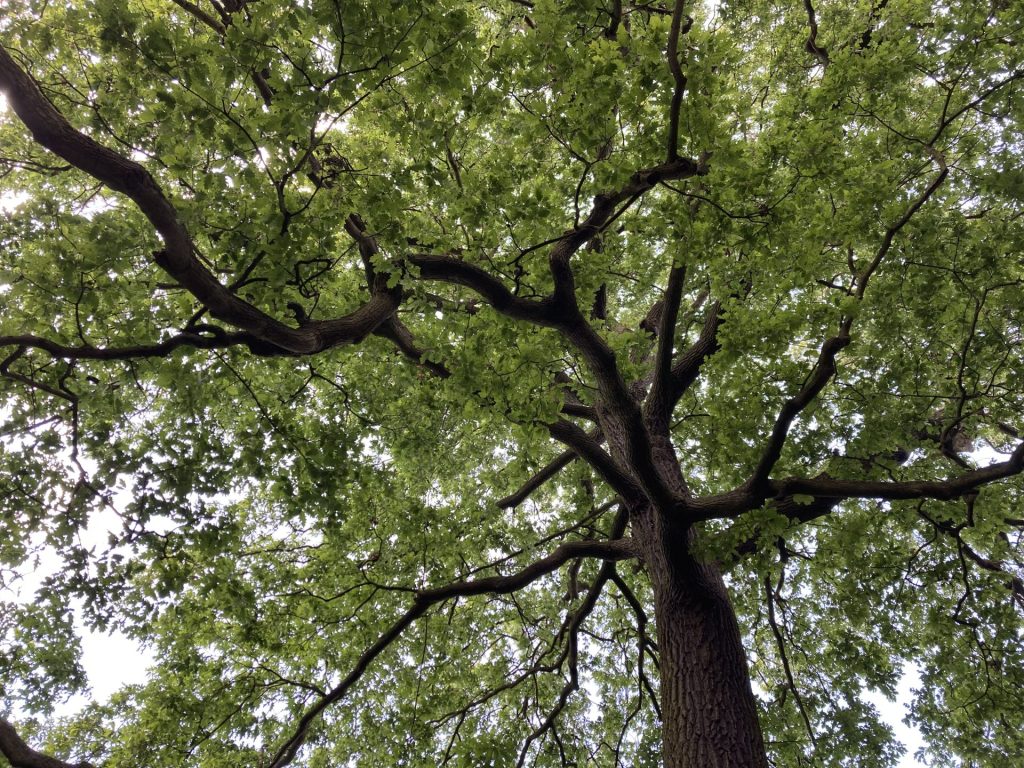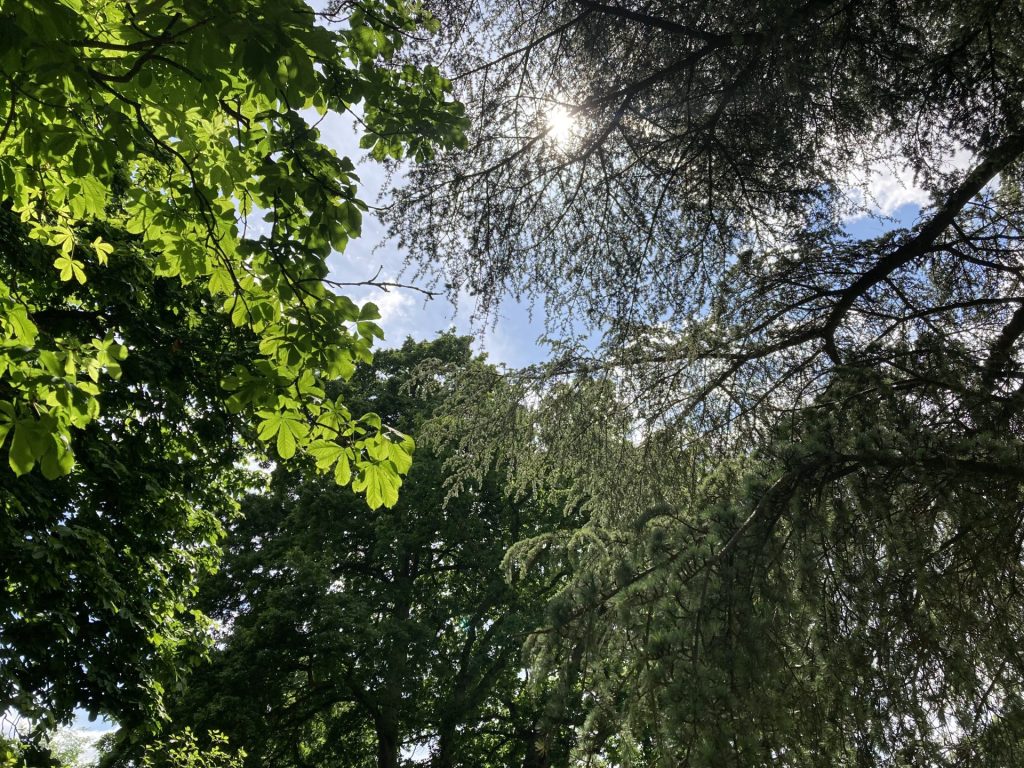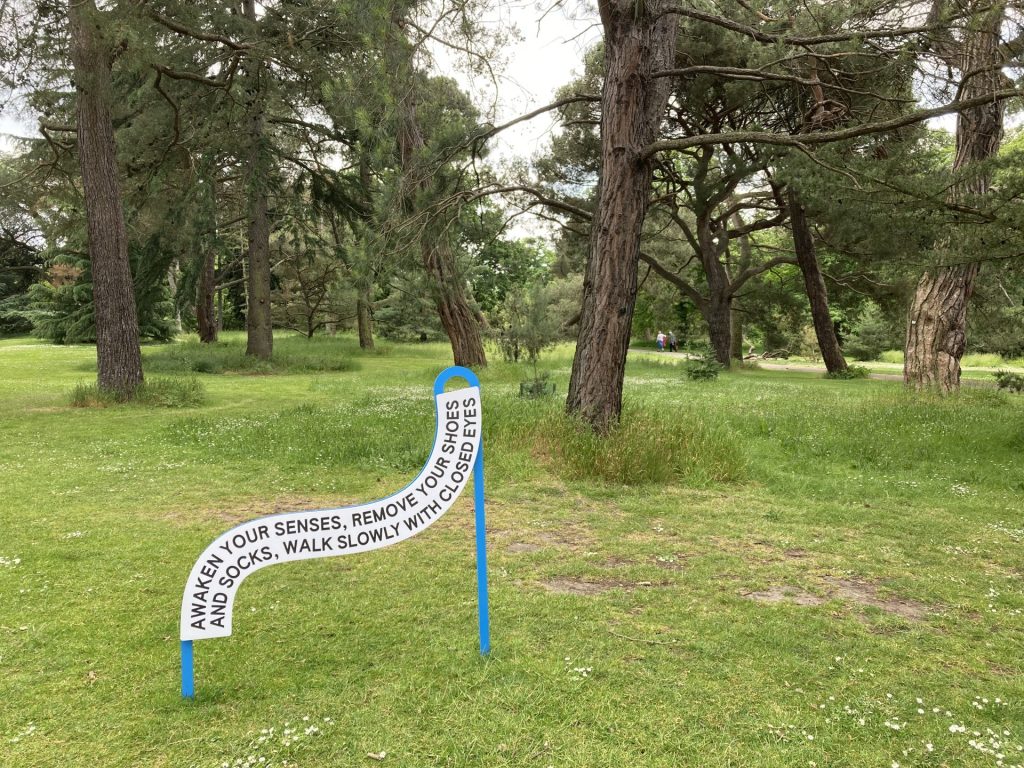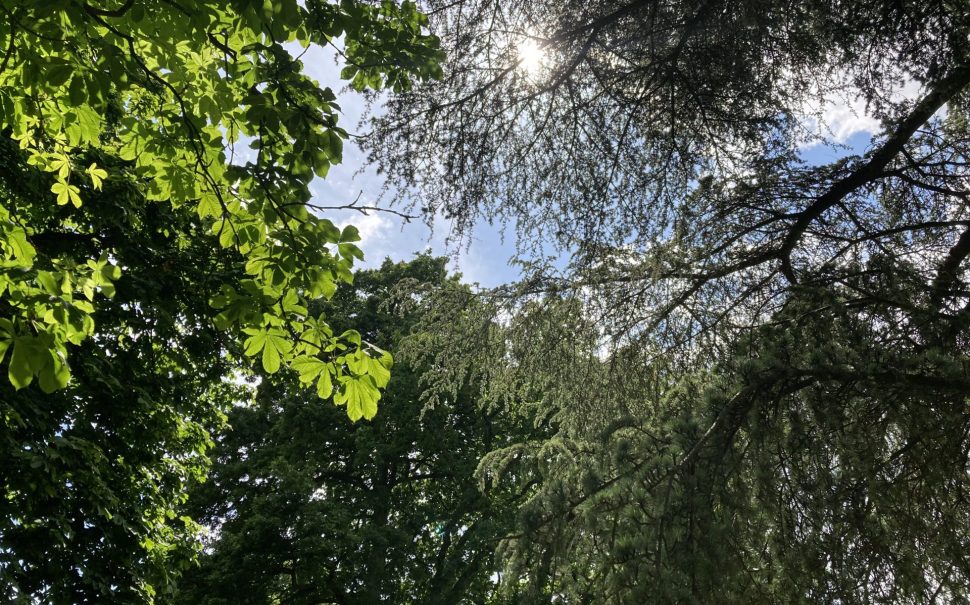“MEET BY THE WATERLILY POND, BRING WARM CLOTHES.”
For those unfamiliar with the term forest bathing, you would be forgiven for thinking it might involve taking a refreshing dip in one of Kew Gardens‘ water features.
For the sixteen of us who have gathered by the pond early on a Saturday morning however, there is no movement towards the water.
The only plunge we are about to take is in spending the next three hours immersed in the Japanese practice of shinrin-yoku, translated as ‘forest bathing’.
As we turn off the main pathway and into the woods, Rosanna and Indra, guides trained by the Forest Bathing Institute, introduce the science behind what might initially be dismissed as another ‘mindfulness’ trend.
Rosanna highlights a study by Professor Qing Li, President of the Japanese Society of Forest Medicine, which explores the physiological and mental health benefits of spending time under the canopy of trees.
Qing Li’s research reveals that phytoncides – the compounds emitted by trees to ward off pests and disease – contribute up to 50% of these health-giving benefits.
The other 50% of the benefits of forest bathing will result from the variety of practices we will try, focusing on our awareness of each of our senses.
We are encouraged to follow silently and slowly as the guides wander further into the wooded area.

For those of us accustomed to the London commuter rush, the slow pace is almost challenging.
As we walk, Rosanna gently asks us to notice ourselves in relation to the natural environment; to be aware of how we’re moving beneath the magnificent trees of Kew, to lower our gaze to the trunk of a tree and let it rise to follow fractal patterns we find in the branches.
Research has shown that viewing fractal patterns – patterns repeated at different levels which are commonly found in nature – has a relaxing effect.
The group certainly seems more relaxed already; any lingering awkwardness is evaporating rapidly.
We cup our hands to our ears to amplify the sound of the wind rustling through the leaves, and the immediate calming effect of the sounds surprises me; it is as if I have turned my mind onto airplane mode.
As we disperse to explore our sense of touch, I catch one of the participants almost tentatively approach a tree, before wrapping their arms around it – the first glimpse of the tree-hugging I had anticipated.
Another participant lies down at the foot of an oak and evidently reaches a level of rest so deep that they have to be gently pulled out of it when it’s time to move on.
We are invited to share what we notice; the vibrancy of the colours of the canopy, the striking pattern of the monkey tree bark, the soft trunk of the sequoia tree.
We sniff the flowers in bloom around us and smell handfuls of soil; research shows that contact with soil bacteria triggers the release of serotonin in our brain.

We lie on the ground, letting each part of our body relax and looking up at the dappled light filtering through the leaves above us.
The Japanese have a word for this: komorebi.
It’s hardly surprising, given that 67% of Japan is still covered by forest, compared to the UK’s measly 13%.
Finally, as if Rosanna is reminded by my rumbling stomach that there’s a sense we haven’t explored yet, she produces a flask of herbal tea for us.
In an endearing British touch, she encourages us to go about making tea mindfully at work – perhaps observing the texture of the mug, listening to the steam of the kettle, and savouring the taste of our morning cuppa.
Indeed, her hope is that participants go away and implement what they have discovered in the session in their daily lives.
It seems that her hopes are well-founded: participants describe feeling recharged and reset, and note how much they enjoyed spending time fully immersed in the nature of Kew, an oasis in the buzzing Capital.
I certainly feel like I’ve just woken up from an incredible power nap.

As we emerge to baffled looks from those enjoying their Saturday afternoon at Kew, Rosanna and Indra chat about the increasing popularity of forest bathing since lockdown and its mental health benefits.
Sessions are continuing at Kew Gardens over the coming months, as part of a wider Wellbeing at Kew initiative.
They are hopeful and optimistic that forest bathing will continue to spread into the mainstream, and speak about the upcoming activities and extensive training offered by the Forest Bathing Institute.
It is as if we are finally rousing ourselves from a deep slumber and waking up to the restorative effects to be found in the nature which has always surrounded us, waiting patiently for us to return.
The Forest Bathing Institute and Kew Gardens are running sessions in partnership over the coming months. More information can be found here: Forest bathing | Kew





